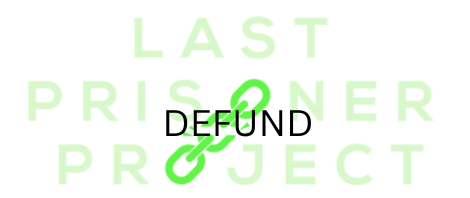Where Is the Money Last Prisoner Project

WHERE IS THE MONEY, LAST PRISONER PROJECT?
As I find myself sending money to incarcerated individuals this Christmas, I have to ask: where is the $3 million in donations that the Last Prisoner Project (LPP) collects in the name of these inmates? After spending over a year working with and investigating this organization, I’ve uncovered some harsh truths.
Let me start with who I am and why I care. My name is Travis Cullen. In 2004, I was sentenced to eight years in federal prison for transporting marijuana from California to Minnesota. I served from 2004 to 2012, long before the industry changed and marijuana became “cannabis”—funny how times change.
After my release, I vowed to leave cannabis behind. But in 2021, when Minnesota legalized cannabis, I decided to enter the legal market and open a store selling legal, state-approved products. That decision triggered a wave of guilt for me—guilt for the friends I left behind in federal prison who are still serving long, outdated sentences for cannabis-related crimes.
To help alleviate that guilt, I turned to activism. I began supporting incarcerated individuals directly—sending commissary money every week, building real friendships, and working to raise awareness for those still trapped in the system. I found my calling. My time in prison gave me a unique perspective, a shared language with these men and women, and the drive to help. I fund my activism through my store, and it’s been a full-circle transformation for me—something my mom can finally be proud of.
That journey led me to the Last Prisoner Project. I was invited to the 420 Day of Unity in 2023 and started working with LPP shortly after. Over time, I dug deeper into their operations—reviewing tax documents, examining their communications with inmates, and speaking directly with those they claim to support. My conclusion? LPP is a disingenuous organization with a glaring wealth gap between their leadership and the prisoners they represent.
Here are the facts:
- Despite raising $3 million in donations, LPP sends only $300 to select inmates every three months, totaling roughly $110,000 annually. This amount has already been slashed from previous years, and their current plan is to cut grants for released inmates from $5,000 to $1,000.
- Meanwhile, LPP’s payroll has skyrocketed from $271,975 in 2021 to $1,345,995 in 2023.
- Founder Mary Bailey, who leads this organization, lives a lavish lifestyle while inmates continue to struggle. She and LPP aggressively chase credit for others’ work, taking over platforms meant for genuine grassroots organizations and leaving smaller nonprofits struggling to make a difference.
What does this mean in practice? It means that every time politicians or other nonprofits make meaningful progress in cannabis reform, the Last Prisoner Project swoops in to take credit. This clout-chasing damages the movement, undermining organizations that are actually helping prisoners.
https://www.politico.com/news/2020/12/30/celebrities-cash-questions-cannabis-prisoner-release-451986
In reality, LPP has become a PR machine rather than a lifeline for inmates. The flashy campaigns and big claims distract from their lack of substantial support for the very people they use to fundraise.
As an eight-year federal prison veteran and first-time felon, I urge you: do not support Mary Bailey or the Last Prisoner Project. There are better, more accountable organizations working for incarcerated individuals. The prisoners deserve real support, not empty promises.
Written by Travis Cullen Through the lens of serving 8 years in federal prison on cannabis charges